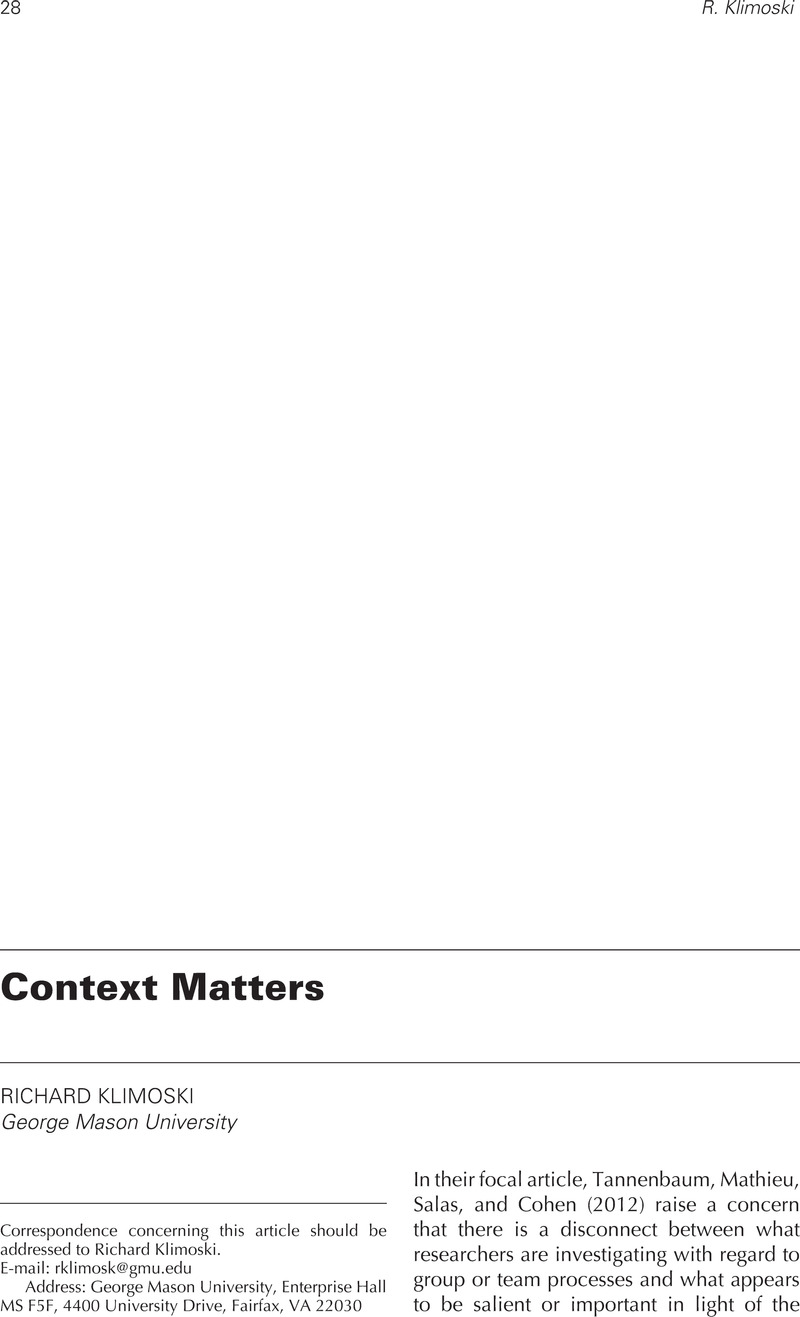Crossref Citations
This article has been cited by the following publications. This list is generated based on data provided by Crossref.
Tannenbaum, Scott I.
Mathieu, John E.
Salas, Eduardo
and
Cohen, Debra
2012.
On Teams: Unifying Themes and the Way Ahead.
Industrial and Organizational Psychology,
Vol. 5,
Issue. 1,
p.
56.





